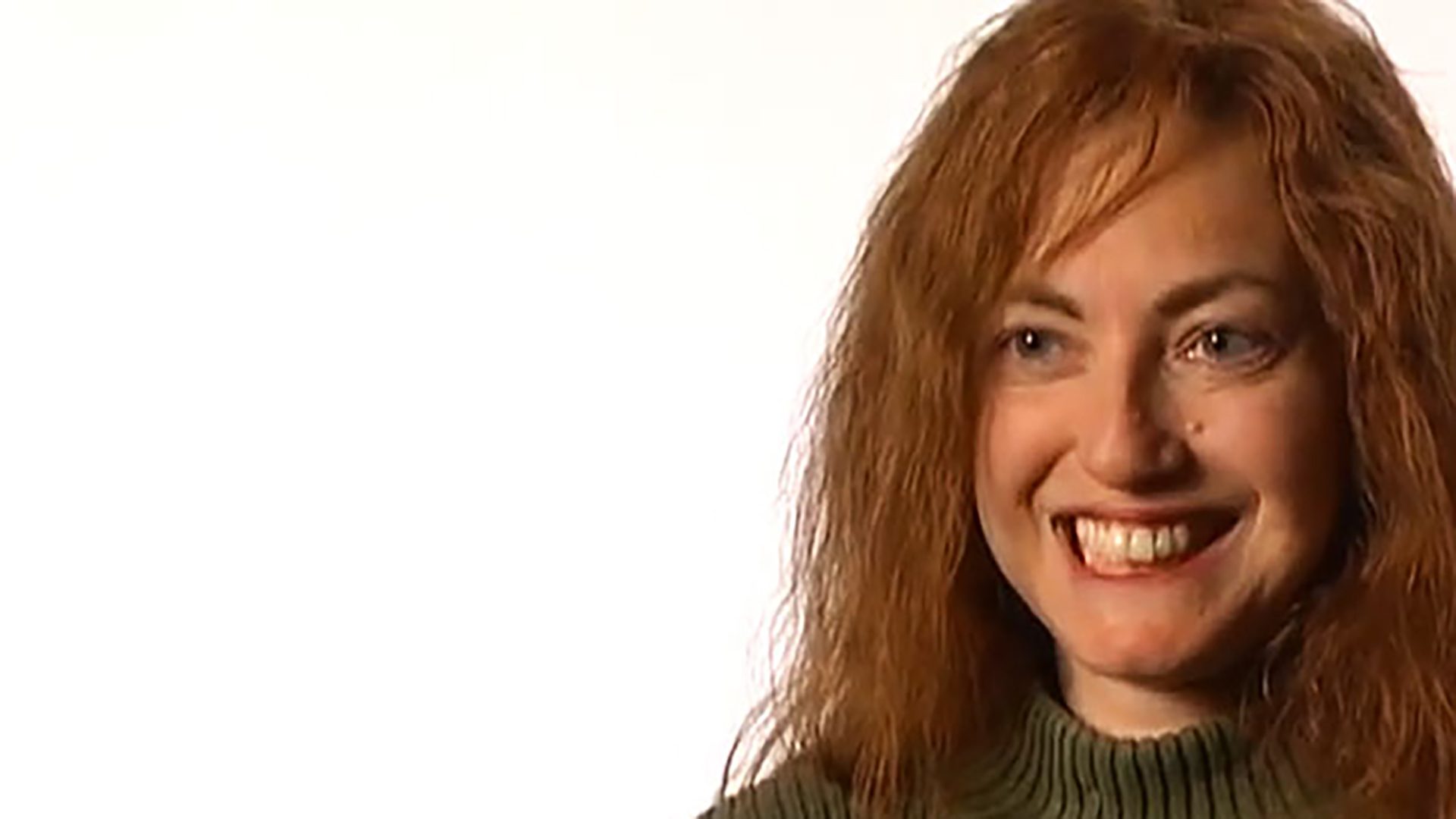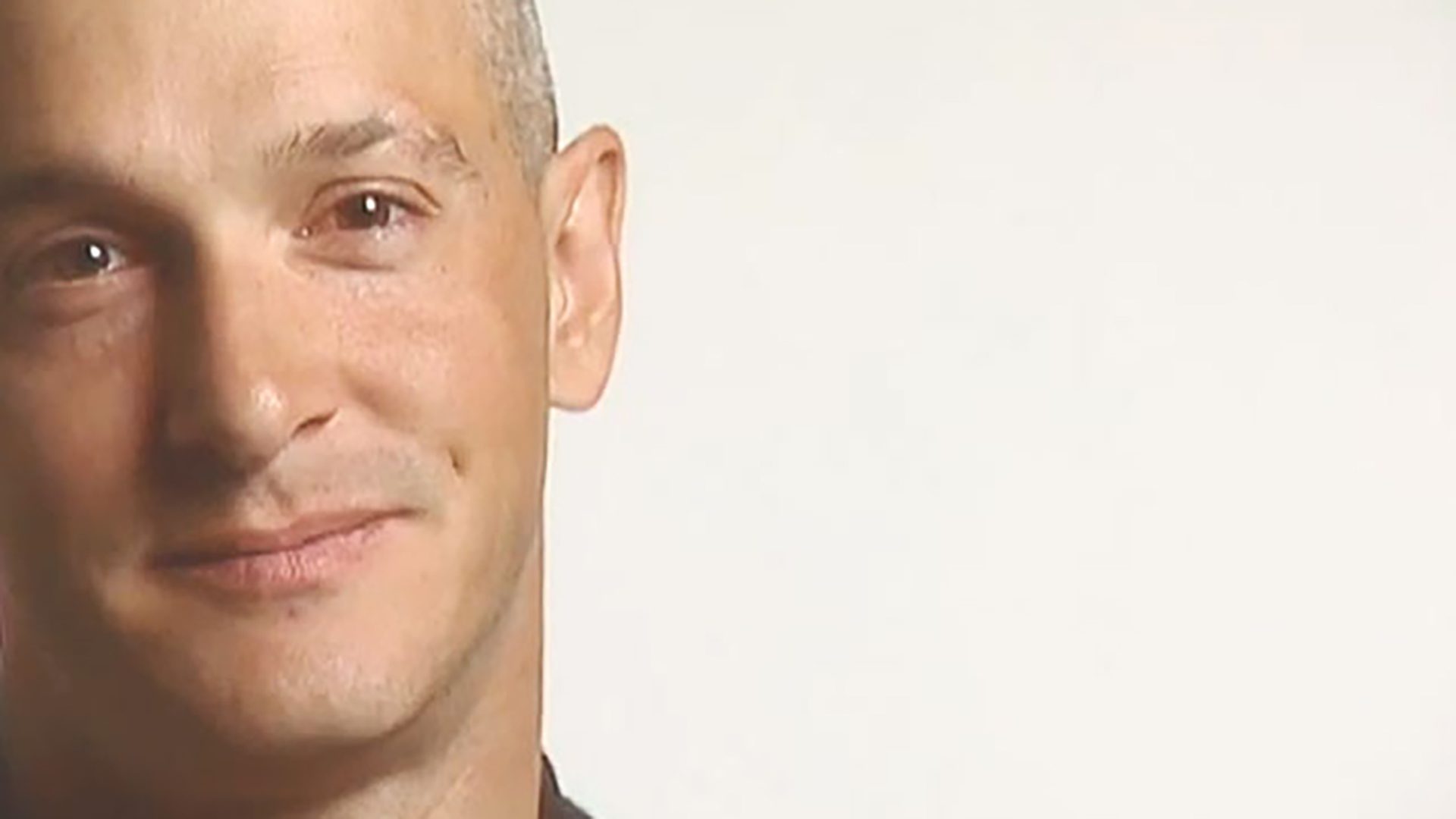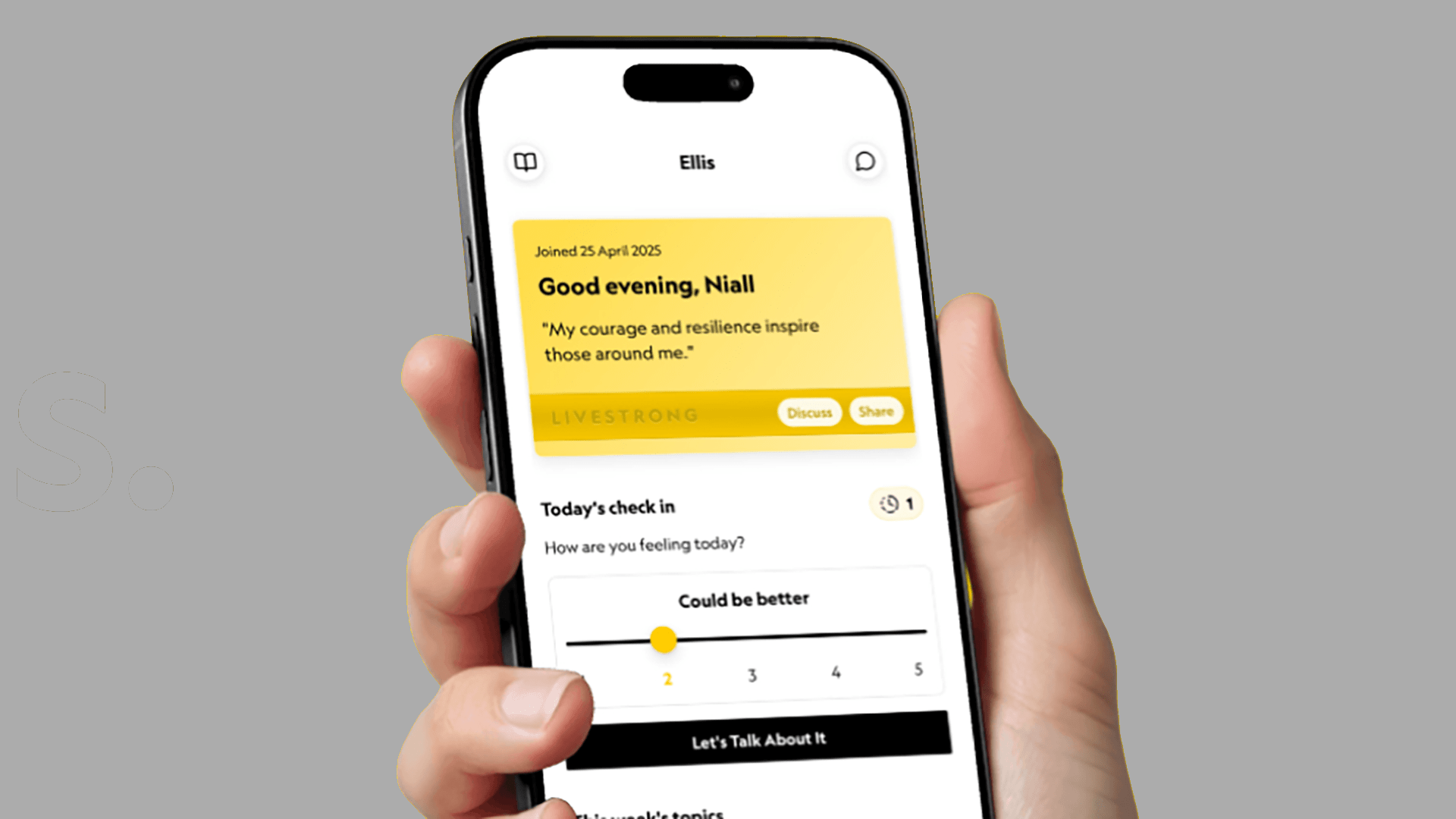Survivor Interview – Anna Marie J.
Anna Marie talks about managing a compromised immune system, emotional support, and finding hope with ovarian cancer.

I became a cancer survivor in 1986 when I was diagnosed with ovarian cancer.
I underwent a hysterectomy and 20 months of chemotherapy. I was 27 at the original diagnosis in 1986, and I really didn’t plan on having any children. So it didn’t bother me as much with the hysterectomy and all that followed. In 1994, I was diagnosed with M.S. [multiple sclerosis]. That threw me a little curve. Along came 1998, when I suffered a recurrence, and here I am now in 2004. I am not on any treatment at the present time. I still have a tumor, but I’m not worried. Actually, I did not worry too much. I think everything happens for a reason.
I’ve had every kind of side effect you can imagine. I’ve had baldness, nausea, weight loss, fatigue, neuropathy, weight gain. I had a blood clot from an IV in my arm, and I had several bowel obstructions, which are quite common with hysterectomies. Honestly, losing my hair was the most traumatic thing. Losing my ovaries didn’t bother me as much. I also have noticed a lot of cognitive difficulties for the last few years. It’s very frustrating. You have a train of thought, and you lose it. I just go with the flow. If I forget something, it’s not the end of the world.
I got married, which was exciting and a very positive thing. Steve wasn’t in my life during the first diagnosis, but I do not honestly think I would be alive right now if it wasn’t for him. I don’t exactly remember the conversation where I told him about my cancer experience. I remember I was having a CA125 test done every month to check my levels, and my level went up when we began dating. I just told him what it meant. It freaked him out a little, but he said whatever happens, we’d get through it together. We did and we are. There are so many times you want to give up. You lose your faith. You lose your hope. He has definitely been my rock; a constant source of strength.
I take an awful lot of precautions to protect my body from germs. I will not use a public restroom unless I have to. Shopping, if someone’s sneezing, I make a beeline for the door. In a movie theatre, if someone coughs next to me, I am out of there. I don’t care how much I paid. You just have to be so very careful to protect yourself from germs. I get the flu shot now every year. Always wash your hands, constantly. Be fanatical about that.
Some things you take for granted, like eating fruit and vegetables. You have to wash everything. One of the main things you have to worry about are strawberries or grapes, because they’re very hard to clean. Normally you just wash your strawberries off, but you have to be very careful because there are pesticides. People handle strawberries differently than they do an apple. There’s more touching. Mostly I avoid them, but if I have to have one, I have this little brush and spray.
With the recurrence, they’ve taken me off my Premarin, which women take as an estrogen replacement therapy after hysterectomies. My doctor first tried to get me off several years ago to put me on Tamoxifen, which is commonly used with breast cancer patients. I hated it. The hot flashes were awful. I was miserable and mean. I still have a friend that barely wants to be around me because I was really mean to him. When they suggested that I do it again, I said, “No.” But then I thought about it and it seemed to be the thing to do in order to survive longer. So I decided I was going to embrace it. A hot flash comes along, I am embracing the heat. It is wonderful, warm and lovely. My cheeks glow with this red, beautiful tan. If I’m moody, get over it. I changed the whole mindset, and it’s working. I just had felt no other way to deal with it.
I didn’t really have any bouts with depression. My doctor gave me a drug called Effexor, and she said, “Take this if you start to be mean. Don’t wait until you actually get depressed or mean.” I started to take it, and I didn’t like the feeling. It alters your whole sense of being, and I had to get off it. It just changed everything that was me. If the hot flashes and depression come along, then that’s me at that time. I just deal with it. I have a big saying: acknowledge it and move on. I’m having a hot flash. Move on. I’m depressed. Take a nap. Have some tea. Move on.
During my recurrence, I did participate in a clinical trial. I had a severe reaction to it midway through and thought I was gonna croak, so they pulled me off. I’ve been on so many drugs and radiation that I don’t seem to qualify for anything. I’m in limbo. Chemotherapy is not working. I’m just waiting for something new to come out. If I can help just one other woman, I will definitely go on another clinical trial.
I have never sought out any psychiatric help or psychological help. I don’t know why. I think it’s just my personality. I suppose support groups are about as close as I have come. I found that you constantly have to tell your story from beginning to end, and then hear other people’s stories. It seems more of a downer, and I can’t figure out how to make it more of an upper. So I don’t go. I am my own support group.
When I go to the Wellness Community, I participate in extracurricular activities, like yoga or tai chi. At Gilda’s Club, I just completed a sculpting class. It’s a bunch of cancer patients getting together to do something that they enjoy, and they might talk about their cancer. I find that more beneficial than sitting around saying, “Hi. My name is Anna Marie, and I have terminal ovarian cancer.” I’d rather hang out, do a common enjoyable activity, and not have it center around croaking.
The first time I heard my doctor say I was “terminal,” I hated it. But the more I thought about it, the more I embraced it. You can’t tell me how long I’m going to live. The treatment might not be working, and I just acknowledged it and moved on. Now they say your disease is “chronic,” like you have a chronic cough or a chronic headache. I guess they realized that “terminal” could send a patient into a dismal spiral. I just like to tell people I’m croaking. I’m croaking, but I’m living.
I find it very hard to set my priorities. Very difficult, because everyone has things that they have to do. Then I have this mindset, “Well, I’m croaking. Let me do this fun thing instead.” New Year’s Eve, I had two glasses of champagne, which is like not me, but I thought, “Oh, I’m croaking, it’s a new year, let’s have some champagne.”
My husband comes with me to every doctor’s appointment. He’s there when I have the pelvic exam. He knows exactly what’s going on, when it’s going on. I relay everything to my family about life expectancy and what will happen at certain points of the disease. Everyone in my family pretty much knows that I don’t want services. I want to be cremated. My father is a retired lawyer, so he is big on wills and making sure that everything is prepared for. So that’s an easy subject to tackle in my family. I don’t have an advance directive or anything. I always said to my husband, “I really don’t want to be in a persistent vegetative state.” It does me no good. It does your family no good. So that’s really the only thing I’ve ever discussed.
Survivorship means love, laughter and vibrant life. When you’re dealing with cancer, there is so much chaos going on in your life. I think that you have to always be on the lookout for that bright, little, shining star in the midst of all that chaos, because it’s there.
Some days it’s very hard to find hope, because you wake up, it’s cold out and you’d rather be in the Caribbean on a cruise ship. You run out of coffee filters, and the littlest thing sets you off. Then, all of a sudden you realize, I am alive. The sun is shining, or it’s raining, or it’s dark. I’m alive. Here I am, I’m breathing, and everything is wonderful. How could you not find hope? Croaking’s not stopping me from living my life today. I’m here. I’m beautiful. I’m fun to be around. Everything is great.
My name is Anna Marie Juliano. I’m 44 years old, and I’m an 18-year ovarian cancer survivor.
Anna Marie Juliano passed away on December 14, 2005. Livestrong thanks Anna Marie and her family and friends for sharing her story and providing inspiration for other cancer survivors.

